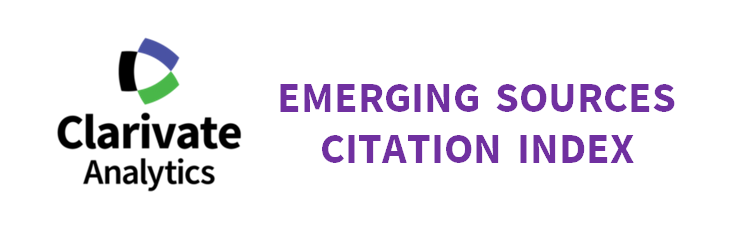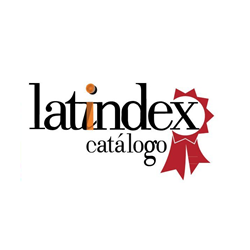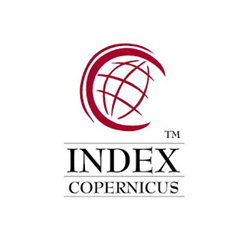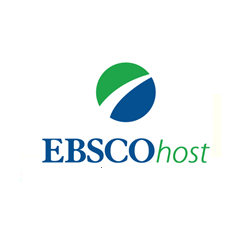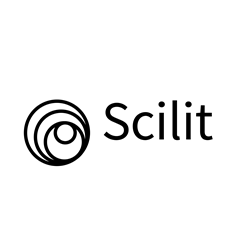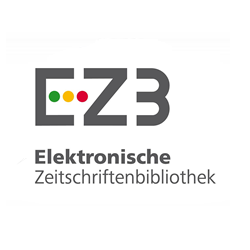Framework para la elicitación de requisitos de interoperabilidad en el contexto de sistemas organizacionales
DOI:
https://doi.org/10.17981/ingecuc.16.2.2020.19Palabras clave:
organización, sistemas organizacionales, elicitación, negocio, interoperabilidadResumen
Introducción— Dentro de la elicitación de requisitos los stakeholders generalmente no logran articular requisitos de interoperabilidad (RI) acordes a las necesidades del negocio, debido a que las organizaciones se enfocan en aspectos técnicos de las soluciones en lugar de realizar sistemáticamente un análisis holístico de la interoperabilidad y su relación con aspectos del negocio.
Objetivo: Describir un framework que orienta desde la perspectiva de negocio, la captura y especificación de RI que pueden presentarse entre los sistemas organizacionales que componen los procesos de una organización.
Metodología— Fue utilizado el método de investigación-acción para definir y aplicar cada uno de los componentes del framework propuesto a partir de cuatro ciclos de investigación y tres ciclos de resolución de problemas en los cuales se aplicó la técnica de estudios de caso.
Resultados— El marco está constituido por cuatro componentes, un conjunto de heurísticas que permiten identificar RI, un modelo que describe los atributos que constituyen la interoperabilidad a nivel de negocio, un proceso que orienta la captura de RI, y una guía para especificar los RI. Por otra parte, los RI desde la perspectiva del negocio se plantean como partida para el desarrollo de los aspectos que se deben abordar en los niveles inferiores de interoperabilidad correspondientes a procesos, servicios y datos.
Conclusiones— A través de tres estudios de caso, se describe la experiencia en la aplicación de la propuesta en dos organizaciones. Los resultados iniciales muestran que el framework es útil, práctico y adecuado para abordar la elicitación de RI.
Descargas
Citas
N. Daclin, D. Chen & B. Vallespir, “Developing enterprise collaboration: a methodology to implement and improve interoperability,” Enterp Inf Syst, vol. 10, no. 5, pp. 467–504, 2016. http://doi.org/10.1080/17517575.2014.932013
H. Panetto, M. Zdravkovic, R. Jardim-Goncalves, D. Romero, J. Cecil & I. Mezgár, “New perspectives for the future interoperable enterprise systems,” Comput Ind, vol. 79, pp. 47–63, 2016. https://doi.org/10.1016/j.compind.2015.08.001
BS ISO/IEC 25010, Systems and software engineering. Systems and software quality requirements and evaluation (SQuaRE), BS, British Standards Institution, UK, 2011. https://doi.org/10.3403/30215101u
R. Rezaei, T. K. Chiew, S. P. Lee & Z. Shams Aliee, “Interoperability evaluation models: A systematic review,” Comput Ind, vol. 65, no. 1, pp. 1–23, Jan. 2014. http://doi.org/10.1016/j.compind.2013.09.001
K. Cenci, E. Estevez & P. R. Fillottrani, “Facilitating Data Interoperability in Science and Technology: A Case Study and a Technical Solution,” presented in 18th Annual International Conference on Digital Government Research, dg.o '17, NY, USA, Jun. 2017, pp. 407–415. https://doi.org/10.1145/3085228.3085291
BS EN ISO 11354-1, Advanced automation technologies and their applications. Requirements for establishing manufacturing enterprise process interoperability. Framework for enterprise interoperability, BS, British Standards Institution, UK, 2011. https://doi.org/10.3403/30185800U
R. Motta, K. Marçal & G. Horta, “Rethinking interoperability in contemporary software systems,” presented in VI Brazilian Symposium on Computing Systems Engineering, SBESC, Bs As, Arg, 23-23 May 2017, pp. 9–15. https://doi.org/10.1109/jsos.2017.5
R. Motta, K. Marçal & G. Horta, “Characterizing Interoperability in Context-aware Software Systems,” presented in Computing Systems Engineering, SBESC, João Pessoa, BR, 1-4 Nov. 2016, pp. 203–208. https://doi.org/10.1109/sbesc.2016.039
N. Daclin, S. M. Daclin, V. Chapurlat & B. Vallespir, “Writing and verifying interoperability requirements: Application to collaborative processes,” Comput Ind, vol. 82, pp. 1–18, Oct. 2016. http://doi.org/10.1016/j.compind.2016.04.001
H. Abukwaik & D. Rombach, “Software Interoperability Analysis in Practice: A Survey,” presented in 21st International Conference on Evaluation and Assessment in Software Engineering, EASE, NY, USA, Jun. 2017, pp. 12–20. https://doi.org/10.1145/3084226.3084255
B. Kitchenham, “Procedures for performing systematic reviews,” Keele University, Keele, UK, NICTA Technical Report 0400011T.1, 2004.
A. Grilo, R. Jardim-Goncalves & V. Cruz-Machado, “A framework for measuring value in business interoperability,” 2007 IEEE Int Conf Ind Eng Eng Manag, IEEE, SG, 2-4 Dec. 2007, pp. 520–524. https://doi.org/10.1109/ieem.2007.4419244
M. M. E. Alemany, F. Alarcón, F. C. Lario & R. Poler, “Conceptual Framework for the Interoperability Requirements of Collaborative Planning Process,” in Enterp Interoperability IV, K. Popplewell, J. Harding, R. Poler, R. Chalmeta (eds), LD, UK: Springer, 2010, pp. 25–34. http://doi.org/10.1007/978-1-84996-257-5_3
C. Legner & K. Wende, “Towards an excellence framework for business interoperability,” presented in 19th Bled eConference, eValues, Bled, SL, 5-7 Jun. 2006, pp. 1–16. Available: https://aisel.aisnet.org/bled2006/29
S. Blanc-Serrier, Y. Ducq & B. Vallespir, “Organisational interoperability characterisation and evaluation using enterprise modelling and graph theory,” Comput Ind, vol. 101, pp. 67–80, 2018. https://doi.org/10.1016/j.compind.2018.04.012
D. Chen, “Framework for enterprise interoperability,” in Enterprise Interoperability INTEROP-PGSO Vision, B. Archimède and B. Vallespir, ed. HOB: Wiley-ISTE, 2017, pp. 1–18. https://doi.org/10.1002/9781119407928.ch1
R. Ruggaber, “ATHENA - Advanced Technologies for Interoperability of Heterogeneous Enterprise Networks and their Applications BT - Interoperability of Enterprise Software and Applications,” in Interoperability of Enterprise Software and Applications, D. Konstantas, J. P. Bourrières, M. Léonard, N. Boudjlida, eds,. LD, UK: Springer, 2006, pp. 459–460. https://doi.org/10.1007/1-84628-152-0_45
N. A. Qureshi, C. D. Nguyen & A. Perini, “Analyzing interoperability requirements for adaptive service-based applications: A goal-oriented approach,” presented at 34 Ann Comp Soft Appl Conf Workshops, IEE, SU, KR, 19-23 July 2010, pp. 239–244. http://doi.org/10.1109/COMPSACW.2010.49
J. McKay & P. Marshall, “The dual imperatives of action research,” Inf Technol People, Vol. 14 No. 1, pp. 46–59, 2001. https://doi.org/10.1108/09593840110384771
ISO/IEC/IEEE 29148:2011, Systems and software engineering — Life cycle processes — Requirements engineering, ISO, International Organization for Standardization, Geneva, Switzerland, 2011. Avalable: https://www.iso.org/standard/45171.html
M. Piattini, H. Oktaba, M. J. Orozco, C. Esquivel & F. J. Pino, Competisoft: Mejora de procesos software para pequeñas y medianas empresas y proyectos. Paracuellos de Jarama: RA-MA, 2009.
R. M. Pillat, R. M. S. Santos & T. C. Oliveira, “Systematic Literature Review on BPMN-based Process Adaptation Approaches,” presented in XV Brazilian Symposium on Information Systems, SBSI; AJU, BR, May. 2019, pp. 1–8. http://dx.doi.org/10.1145/3330204.3330242
D. E. Paz, F. J. Pino & S. L. Buitron, “A model for the elicitation of organizational system interoperability requirement,” Ing Solidar, vol. 16, no. 3, pp. 1–36, 2020. https://doi.org/10.16925/2357-6014.2020.03.01
P. Runeson & M. Höst, “Guidelines for conducting and reporting case study research in software engineering,” Empir Softw Eng, vol. 14, no. 2, pp. 131–164, 2009. https://doi.org/10.1007/s10664-008-9102-8
R. K. Yin, Case study research and applications: Design and methods. TO, USA: SAGE, 2017.
M. Host & P. Runeson, “Checklists for software engineering case study research,” presented in First International Symposium on Empirical Software Engineering and Measurement, ESEM, MD, ES, 20-21 Sept. 2007, pp. 479–481. https://doi.org/10.1109/ESEM.2007.46

Publicado
Cómo citar
Número
Sección
Licencia
Derechos de autor 2020 INGE CUC

Esta obra está bajo una licencia internacional Creative Commons Atribución-NoComercial-SinDerivadas 4.0.
Los artículos publicados son de exclusiva responsabilidad de sus autores y no reflejan necesariamente las opiniones del comité editorial.
La Revista INGE CUC respeta los derechos morales de sus autores, los cuales ceden al comité editorial los derechos patrimoniales del material publicado. A su vez, los autores informan que el presente trabajo es inédito y no ha sido publicado anteriormente.
Todos los artículos están bajo una Licencia Creative Commons Atribución-NoComercial-SinDerivadas 4.0 Internacional.


 English
English
 Español (España)
Español (España)
